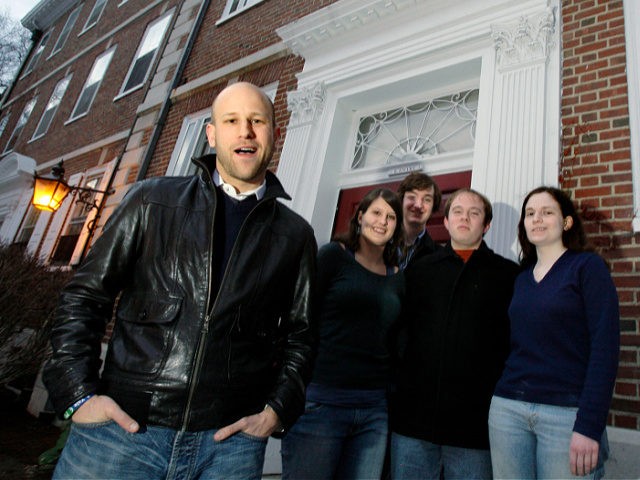Two faith-based organizations associated with Harvard University have claimed the New York Times story about the unanimous election of an atheist humanist as head “chaplain” at the school was mischaracterized since the role is “purely administrative” and has “no influence.”
The Harvard Catholic Center and the school’s Christian Alumni Society defended the decision of more than 40 chaplains to elect atheist Greg Epstein, author of Good Without God, to be its new president of the chaplains’ organization.
“There is a rising group of people who no longer identify with any religious tradition but still experience a real need for conversation and support around what it means to be a good human and live an ethical life,” Epstein told the New York Times, where he was presented as having arisen to the role largely because university students have grown increasingly secular.
“We don’t look to a god for answers,” he said. “We are each other’s answers.”
According to the Times, Epstein has been “teaching students about the progressive movement that centers people’s relationships with one another instead of with God.”
But Nico Quesada, marketing and media director at the Harvard Catholic Center, told Catholic News Agency (CNA) this week Epstein’s new role is “purely administrative,” and that the Times mischaracterized the influence of his position.
“There really is no influence in the role other than the fact that he has the title as the president as the Harvard Chaplains and that he’s the liaison between that group and the president of Harvard,” Quesada said, adding Epstein “is just carrying on the message from the Harvard Chaplains to the president of Harvard,” and is “under watch of his colleagues.”
Quesada told CNA Epstein’s administrative role will not affect the Catholic Center’s mission.
“His role is not as the chief chaplain,” he said. “It is actually as the president of the Harvard Chaplains.”
Quesada said the Catholic Center received many emails, in the wake of reports of Epstein’s election, with concerns about whether he will have an influence over the Catholic chaplaincy.
While the Catholic chaplains ultimately voted with their colleagues to select Epstein for the role, they were not part of the group that nominated him initially, Quesada noted, admitting the Catholic Center did, at first, have concerns about “the overall message that his [Epstein’s] election would send.”
The overarching administrative quality of the role, however, led the Catholic Center to believe the election of an atheist would not affect religious life on Harvard’s campus, Quesada said.
The Harvard Christian Alumni Society (HCAS) also expressed “disappointment” with the stories at the Times and other media about Epstein’s election as president of the school’s chaplains, claiming they presented “misinformation.”
Jordan Monge Gandhi, HCAS secretary, said in a statement:
Although I personally know and greatly respect Greg Epstein, Harvard’s secular humanist chaplain, this article is characteristic of the inadequate journalism on religious matters. The article fails to explain what role Harvard’s chaplains serve, why a group of religious people would select Epstein as their president, or why this should even qualify as news (besides being splashy and involving our notorious alma mater). It seems written in a way to prompt secular triumphalism and to provoke Christian outrage.
Gandhi noted the “approximately 600 practicing Christian undergraduates on campus, served by the Christian chaplains (including the Catholic priests of St. Paul’s) as well as local churches and other student groups (such as Christian Union’s HCFA).”
“That represents roughly 10% of the undergraduate student body,” the statement continued. “These students are regularly involved in the campus ministries and often report great spiritual growth during their time at Harvard.”
Epstein served as chair of the Humanists for Biden group during the 2020 presidential election, observed GetReligion.org last October.
“The humanist and nonreligious community is poised to be a very significant part of this presidential election in that we represent maybe 30% or so of Democratic voters,” Epstein told Religion News Service at the time, adding his organization was hoping to attract a broad coalition of atheists, agnostics and other religiously unaffiliated voters who political strategists believe make up the largest belief group in the Democrat Party.

COMMENTS
Please let us know if you're having issues with commenting.